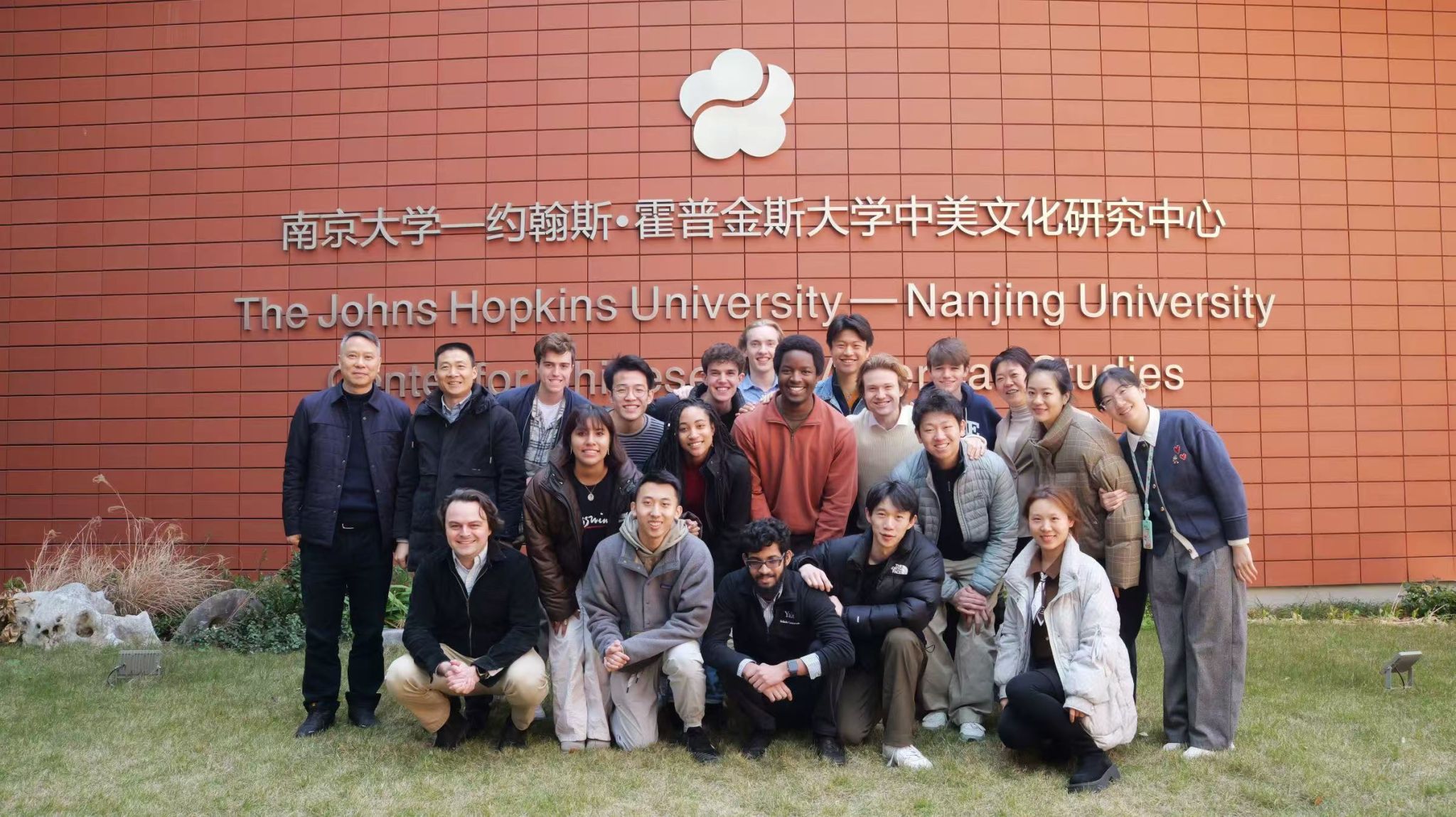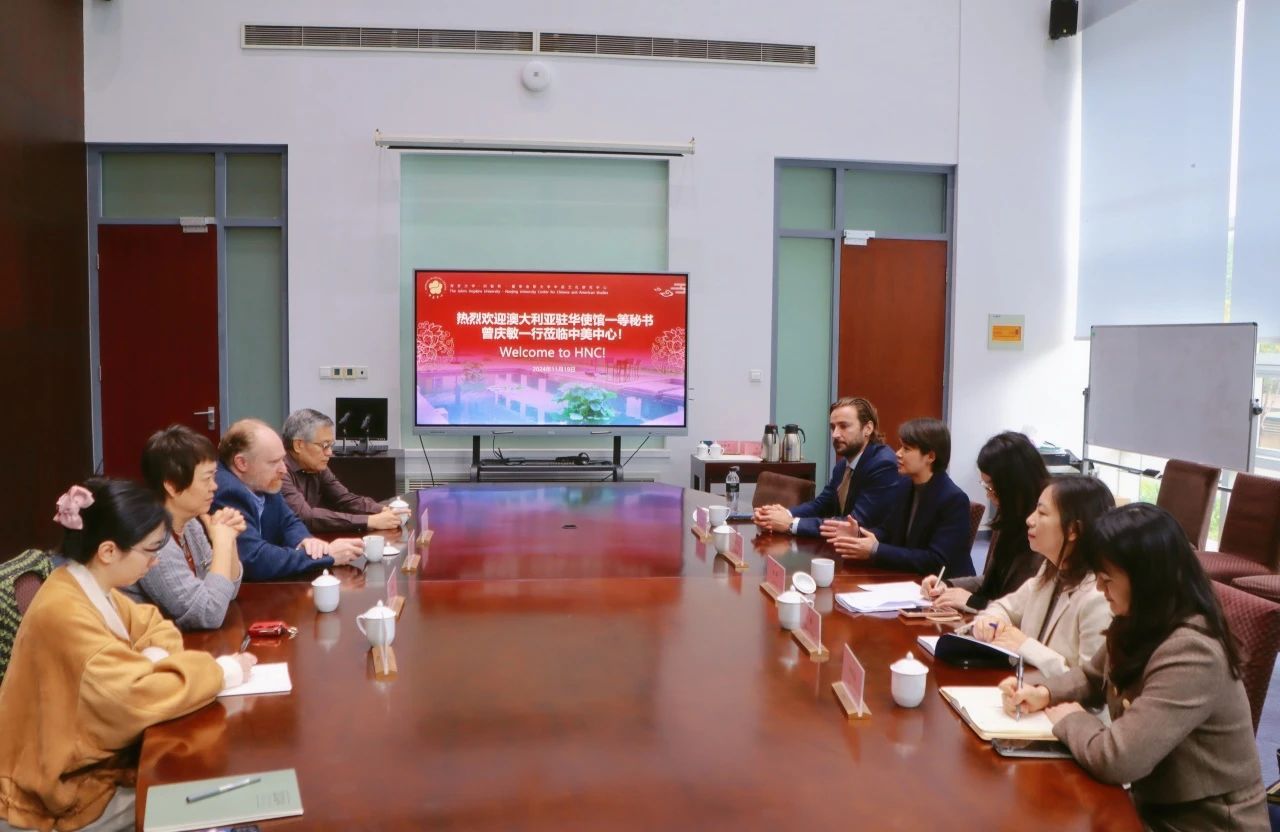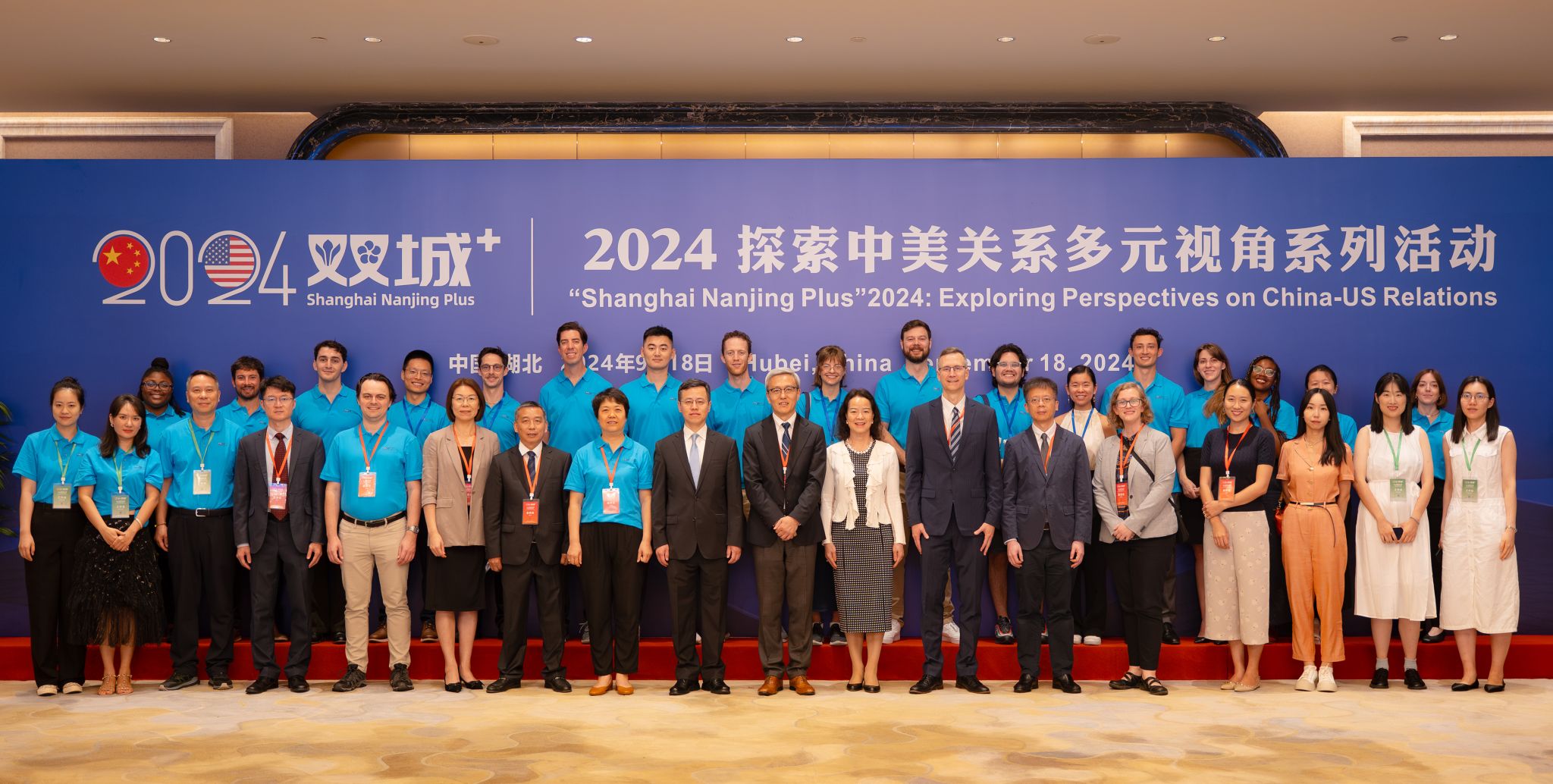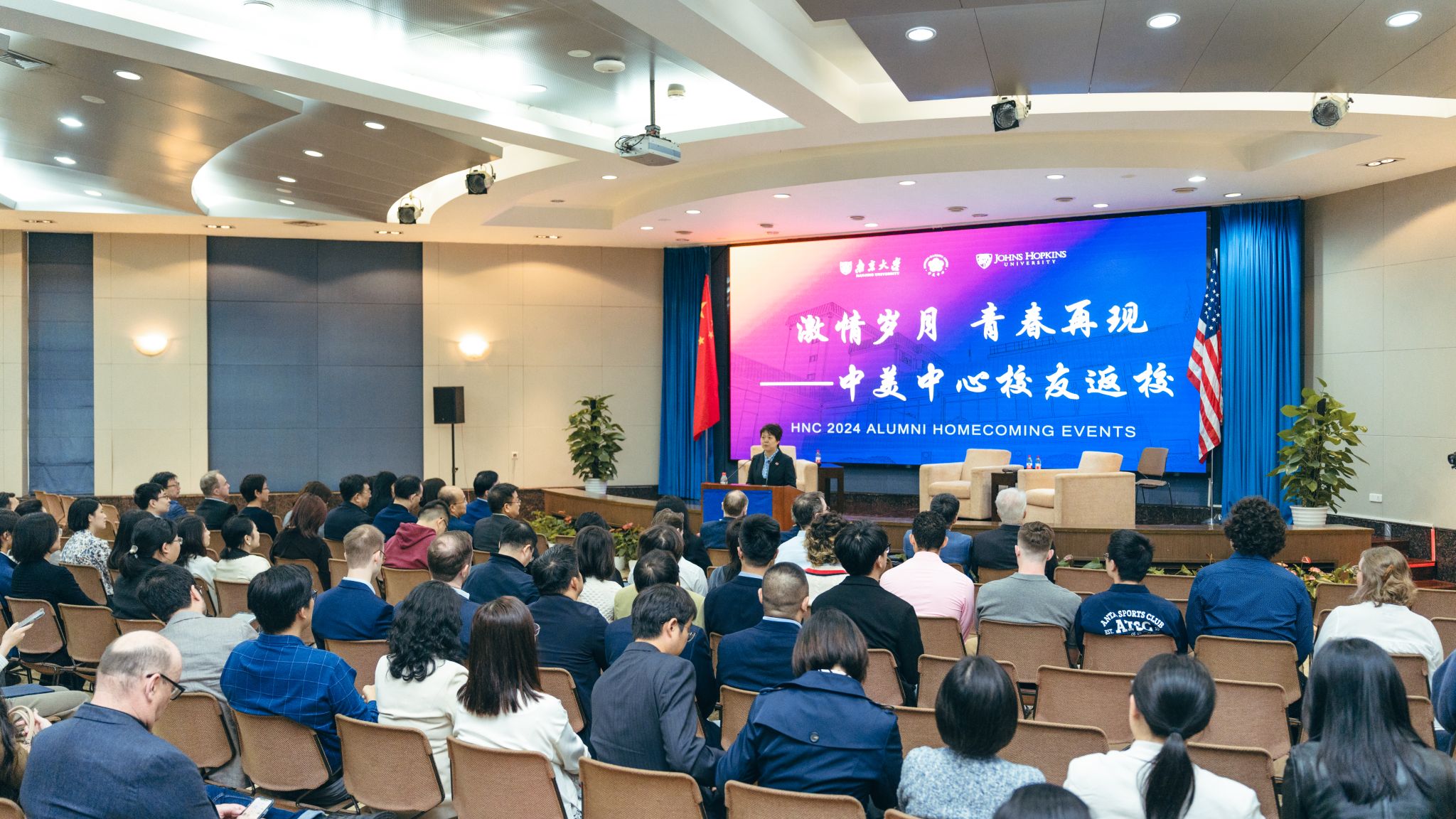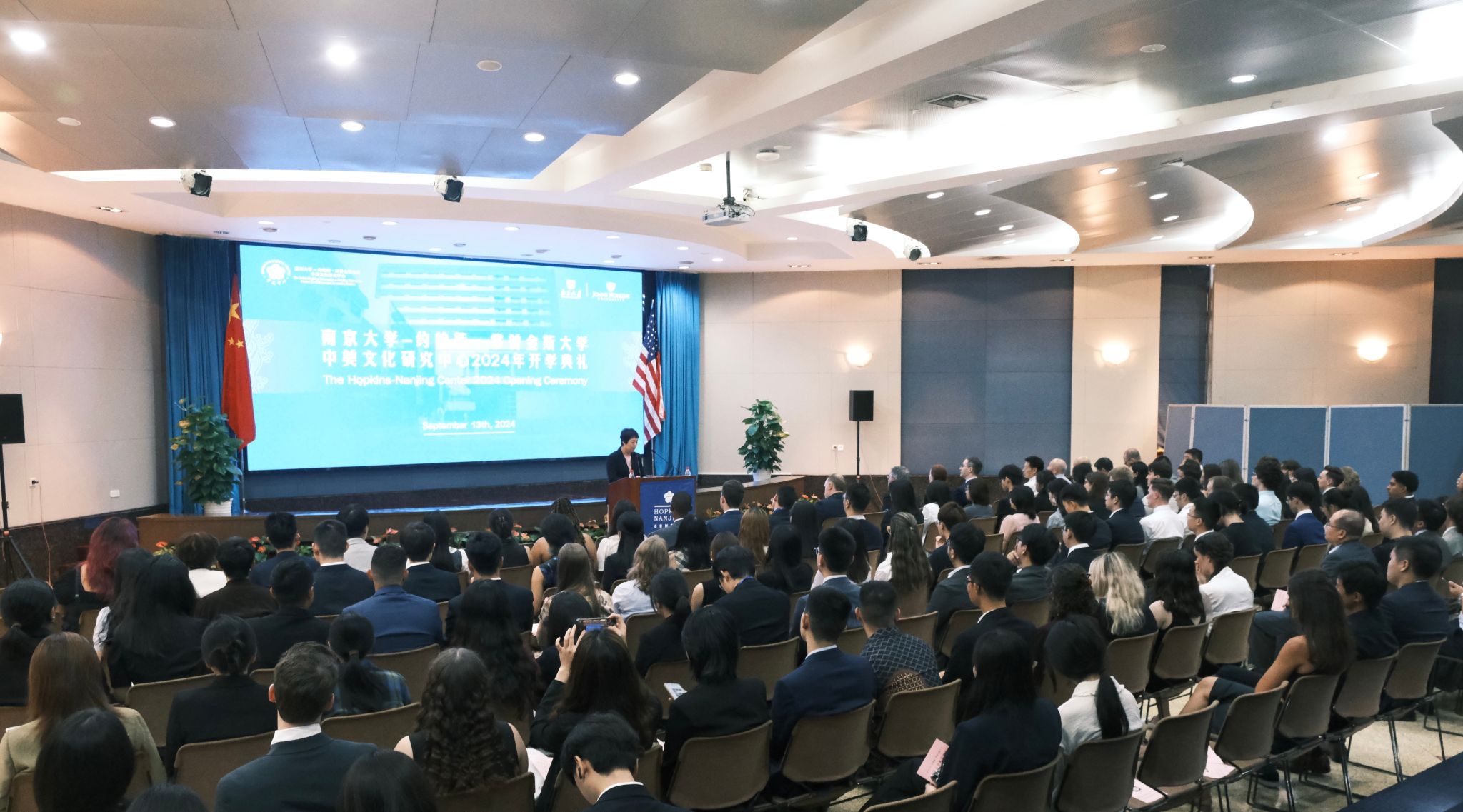Editor’s Note:
The Johns Hopkins University-Nanjing University Center for Chinese and American Studies, hereafter referred to as HNC, is an educational and research institution jointly established by two renowned universities in China and the United States. The internationalization and openness of HNC have attracted numerous students from home and abroad, including some second-generation alumni of HNC. In this issue, we have invited Jiao Xueying, a student on the 2022 certificate program, to share the story of how she and her uncle became alumni and their connection with HNC.
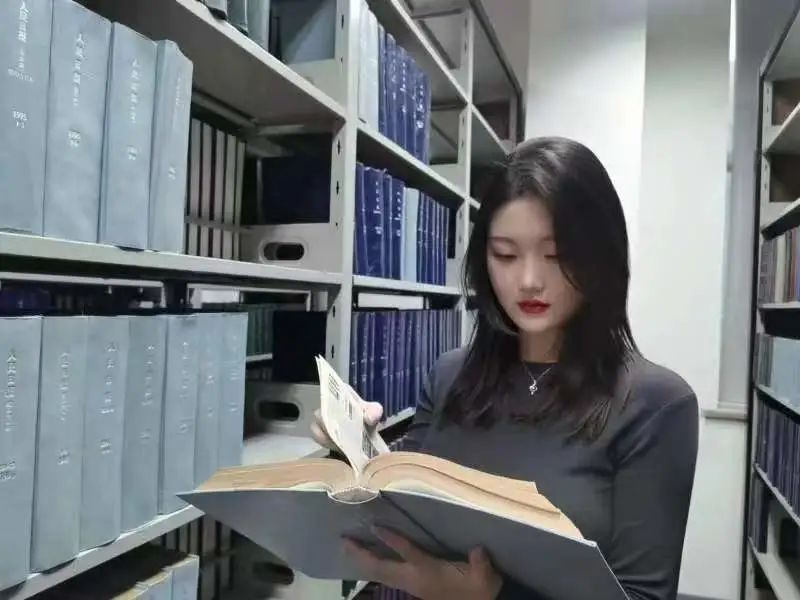
Jiao Xueying, a student on the 2022 certificate program
I grew up in the beautiful northern coastal area and later went to university in Beijing; my social circle used to be in the northern region. I always wished to have more “diverse” perspectives and experience the customs and traditions of the Yangtze River Basin in the south. I also wanted to study abroad and broaden my international perspective while I was still young. However, the pandemic completely disrupted my plans to go abroad, and my passion for international maritime law brought me back to my hometown.
In 2022, as a Master’s student in International Law at the Ocean University of China, I finally had the opportunity to come to HNC for a one-year certificate program. This resolved two of my concerns at once! Moreover, Nanjing was the ancient capital of six dynasties in China, so now I have finally stayed in both “imperial capitals” of Beijing and Nanjing!
An autumn evening in the inner garden of HNC
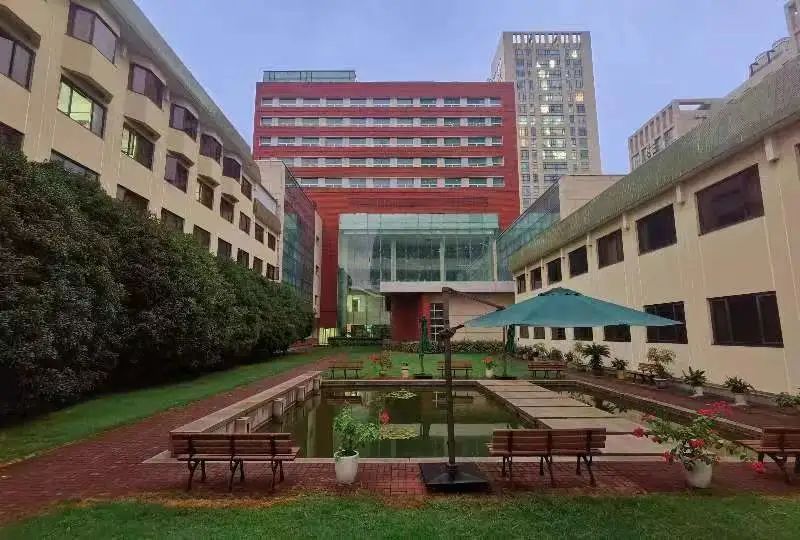
I learned about HNC from my uncle. He used to be a student on the 1995 certificate program and has always been proud to call the center his alma mater. He has told me many times that the center changed his life. If it were not for HNC, he would not have gained knowledge about the Western world and broadened his horizons. He would not have had the opportunity to cross half the globe and then returned to his homeland either.
The corridor that leads from the dormitory to the dining hall, which has been traversed by students of HNC numerous times
He also reminisced how he learned about the Boston Consulting Group (BCG) through an advertisement on a small A4 paper on bulletin board at HNC and was able to be interviewed by the company. This opportunity led to his employment by the company. Later, he went on to study at Columbia University and then worked at Goldman Sachs on Wall Street before eventually starting his own business. Thanks to his education at HNC, he has maintained a long-standing interest in Sino-U.S. relations, international economics, and international politics.
On June 18, 2022, to celebrate the 35th anniversary of the establishment of HNC, he and his roommate, Nowell Chernick, as well as alumni representatives from various cohorts, including the class of 1995, held a sub-forum titled “Seeking Ballast in the Headwinds: Improving Sino-U.S. Relations.” They shared insights and suggestions on improving Sino-U.S. relations and deepening the friendship between the two countries.
Nowell Chernick, an American student from the class of 1995 certificate program, delivered a speech via video at the alumni sub-forum on the occasion of the 35th anniversary of the establishment of HNC
My uncle and his American roommate hit it off right away and became lifelong friends, and the transnational friendship continues to this day. I have also deepened my understanding of HNC from his experience. Nanjing University and Johns Hopkins University are famous universities in China and the United States respectively, and the two institutions are far ahead in the fields of international relations, international law, and diplomacy. Integrating the resources of the two universities, the center has become the forefront of research on Sino-U.S. relations, Chinese and American cultures and international law, international politics and economics. In addition, HNC, as the first cooperative educational project between China and the United States, has established a “cross-language, cross-cultural, cross-disciplinary, and cross-border” and “co-learning, co-living, co-growing, and co-development” model. The training at the center has influenced the way how generations of graduates think, act, and work. After 35 years of development, HNC has cultivated a large number of outstanding talents in the political and economic fields of the two countries and even the world.
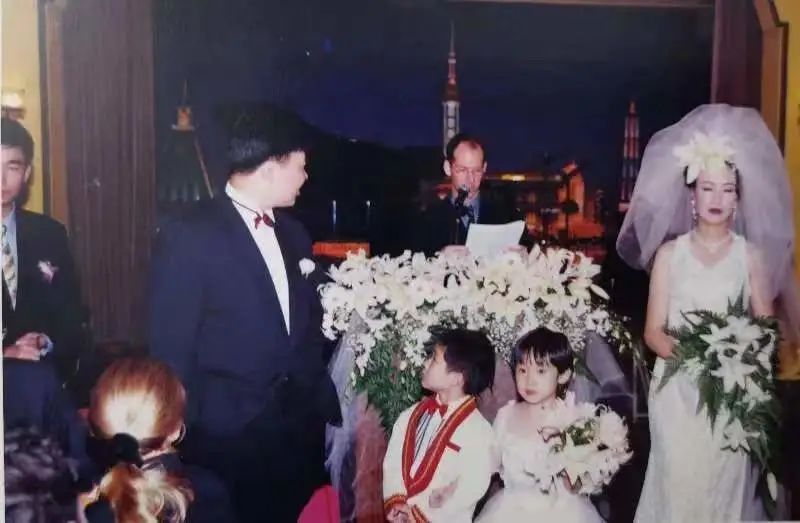
My uncle’s roommate at HNC giving a speech at his wedding in 1998
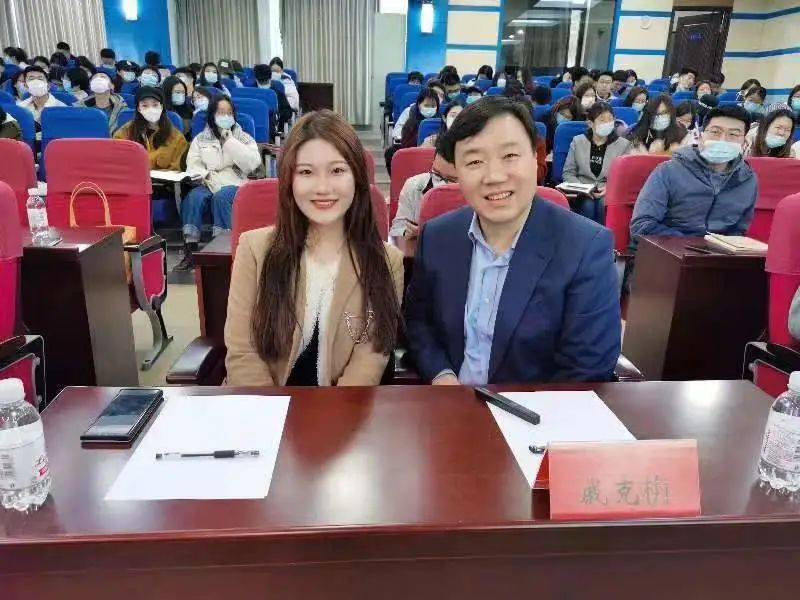
Two generations of HNCers
The full and warm life at the center is unique in China, and it brings me surprises every day. The students are masters students or professionals from different countries with different professional backgrounds, but this will not affect everyone’s sharing of insights and exchanges on professional issues in the classroom. Instead, each is inspired by others to break through cultural and disciplinary barriers and use multiple perspectives to think and discuss from global perspectives. After class, Chinese and foreign students also help each other and have friendly exchanges, such as the establishment of a Writing Revision Group, which helps each other improve their target language learning and at the same time promotes cultural exchanges and enhances mutual respect and recognition.
The courses at HNC cover various fields such as economy, law, politics, history, environment, philosophy, culture, etc. (It is said that there used to be cooking classes as well!) Students who do not have a professional foundation can understand and enjoy them all the same, and the “small class” teaching mode also provides more opportunities for interaction and speech. The professors’ strong sense of responsibility and their rigorous and serious character are not only reflected in the carefully prepared course content, but also penetrate into the meticulous homework annotations outside the class.
HNC is more like a “community” than a “school.” Everyone learns and plays together, and the teachers, students, and alumni have close contacts. Teachers and students have meals and chat together in the cafeteria, toast together at the barbecue dinner, and practice calligraphy and table tennis after class.
Mrs. Zhang Jipei, Program Officer for Alumni and Career Services, often invites outstanding alumni from all over the world to deliver lectures and share valuable employment resources to the students. Co-Director Cong Cong even ingeniously created a dinner event for directors, guests, and students, opening a window for communication and resource integration within the extended HNC community, and helping everyone explore more possibilities for career development. Here, I can feel the care and concern from the teachers and fellow graduates. It is not in a superficial form, but a real and very nuanced feeling.
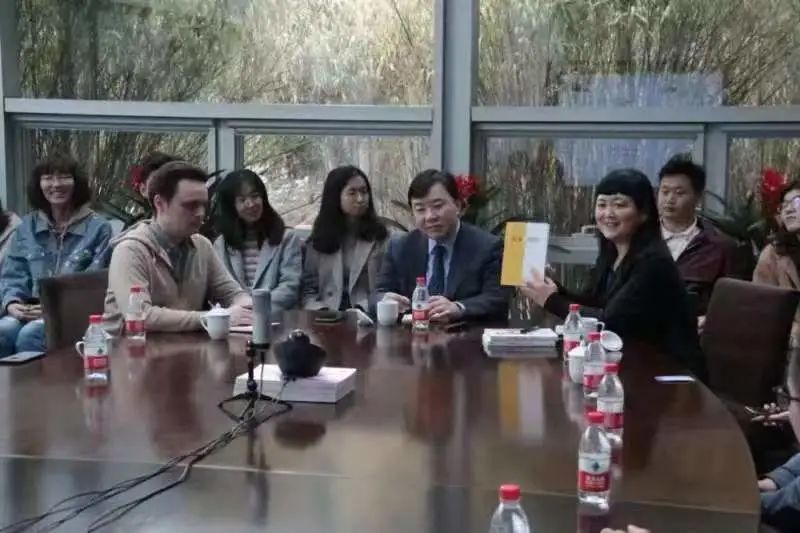
The lecture was chaired by Chinese Co-Director Cong Cong and American Deputy Co-Director John Urban.
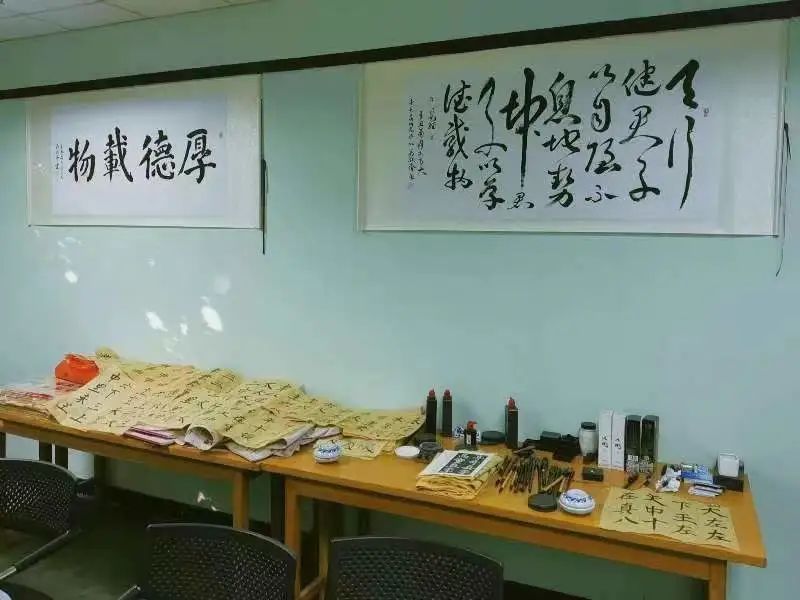
Calligraphy classes with the appeal and tenor of Chinese culture
The students at HNC upheld the core spirit of the center—work hard, play hard. Under the careful organization of the class committee, Chinese and international students participated in group building activities such as hotpot dinners, board games, lake walks, and autumn outings. They helped us get familiar with each other in this process, while feeling the charm of Nanjing, the “ancient capital of six dynasties” and “city of ten dynasties,” enjoying the comfort of reading in the afternoon sun by the pond at HNC, and also appreciating Xuanwu Lake together. The beautiful scenery of the lake and the forests of Qixia Mountain are all indelible memories.
A visit to Xuanwu Lake at night along with classmates from different places
“The peach and the plum do not speak, yet a path is born beneath them.” As more and more younger generations related to HNC graduates come to the center to study and pursue knowledge, they will pass on the spirit and values of the center, and witness its continuous development and breakthrough over the past few decades. This is a time when the sweet-scented osmanthus is in full bloom, and the center is filled with a refreshing fragrance. I sincerely hope the center will last forever and cultivate more talents for Sino-U.S. affairs and international affairs.
note: thanks to my uncle, a HNC alumnus, for the interviews and the photos
